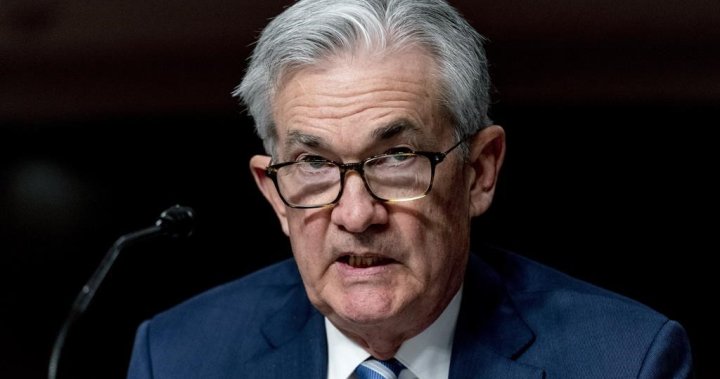
U.S. Fed signals rate hike as soon as March to fight inflation
Global News
The Federal Reserve signaled Wednesday that it plans to begin raising its benchmark interest rate as soon as March.
The Federal Reserve signaled Wednesday that it plans to begin raising its benchmark interest rate as soon as March, a key step in reversing its pandemic-era low-rate policies that have fueled hiring and growth but also escalated inflation.
With high inflation squeezing consumers and businesses and unemployment falling steadily, the Fed also said it would phase out its monthly bond purchases, which have been intended to lower longer-term rates, in March.
In a statement issued after its latest policy meeting, the Fed it “expects it will soon be appropriate” to raise rates.
Though the statement didn’t specifically mention March, half the Fed’s policymakers have expressed a willingness to raise rates by then, including some members who have long favored low rates to support hiring.
The Fed on Wednesday also set out principles it will follow once it decides to reduce its nearly $9 trillion in bond holdings, a sum that has more than doubled since the pandemic struck nearly two years ago. Some analysts expect the Fed to begin doing so as soon as July, a move that would contribute to tighter credit.
The central bank’s actions are sure to make a wide range of borrowing – from mortgages and credit cards to auto loans and corporate credit – costlier over time. Those higher borrowing costs, in turn, could slow consumer spending and hiring. The gravest risk is that the Fed’s abandonment of low rates could trigger another recession.
The central bank’s latest policy statement follows dizzying gyrations in the stock market as investors have been gripped by fear and uncertainty over just how fast and far the Fed will go to reverse its low-rate policies, which have nurtured the economy and the markets for years. The broad S&P 500 index fell nearly 10% this month before rebounding slightly Wednesday.
High inflation has also become a serious political threat to President Joe Biden and congressional Democrats, with Republicans pointing to rising prices as one of their principal lines of attack as they look toward the November elections.
